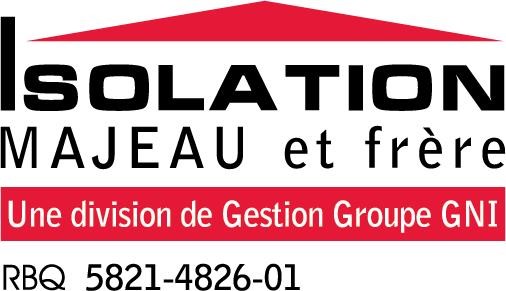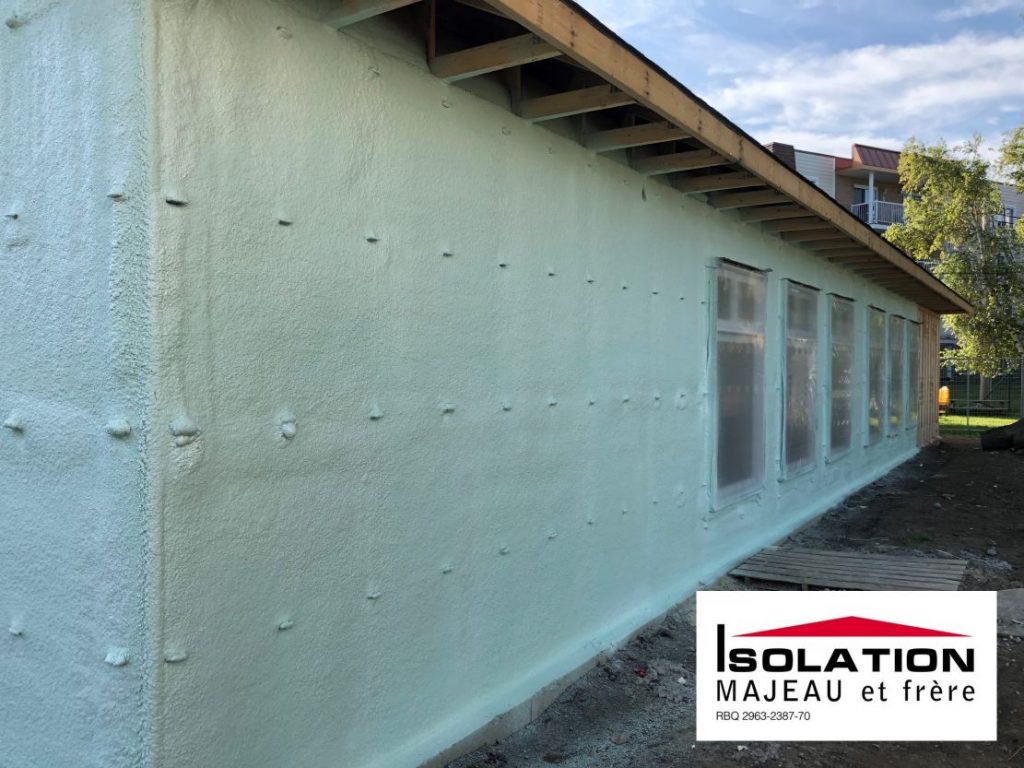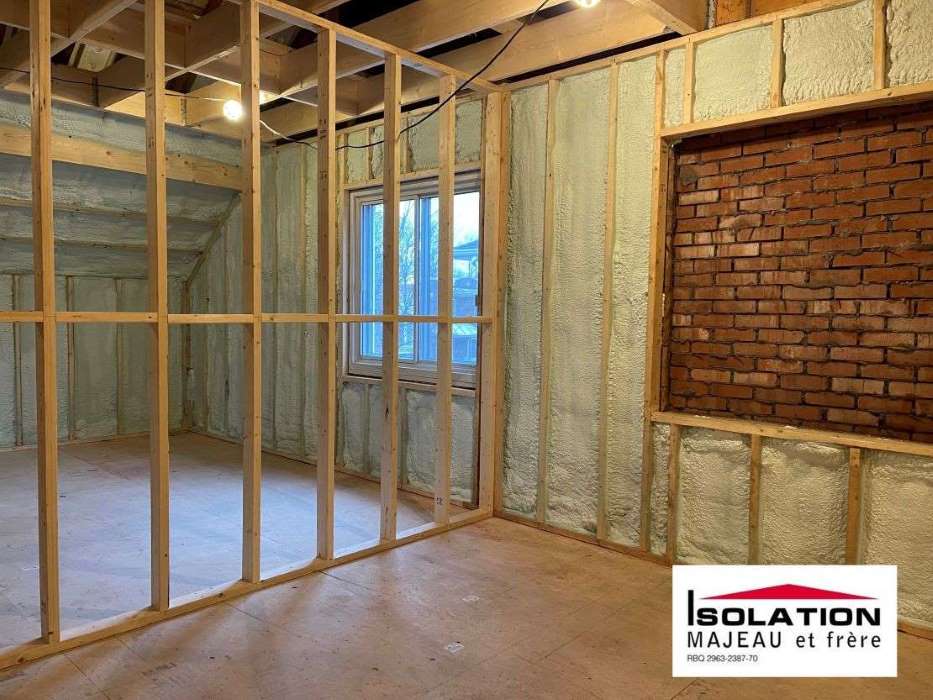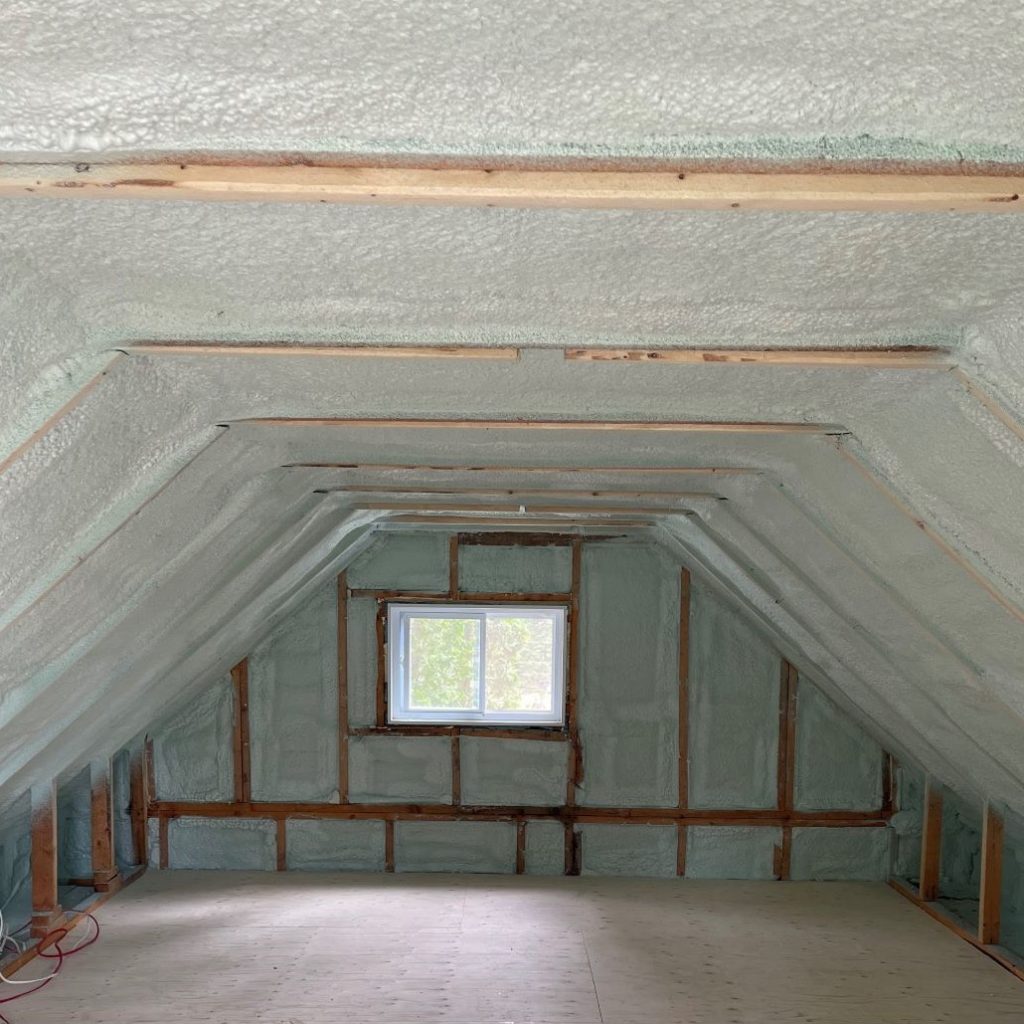You probably heard about the concept of getting a building’s envelope airtight. But do you really know why it’s important to get the walls, the roof, and the floor airtight? Isolation Majeau breaks down the concept, the pros, and the cons of a house that doesn’t let water vapour and drafts through.
Why Get Your House Airtight?
There are a lot of reasons to insulate and to install a vapour barrier. Protecting your house from leaks allows you to:
– Control air losses that can carry water vapour and dampness into the building’s envelope (roof and walls). When there is condensation in the walls, it promotes the apparition of mildew, the materials’ deterioration, and the proliferation of bacteria.
– Ensure a better comfort. The more a building is airtight, the less you will feel cold drafts. An airtight house is then warmer and more comfortable.
– Stop warmth losses and lower your heating bill. If leaks allow the warmth to escape, it will cost a lot more to heat your house. The same goes for summer. If warm air gets in the house, it will be more expensive to keep it cool.
– Not dry the air inside the house. When a building has a lot of air leaks, the dampness will also leave the house and make the air dryer.
What Risks Are Linked to Improving Airtightness?
– Degradation of inside air. Because in a more airtight building, contaminants can remain inside for a longer time.
– Augmentation of the humidity level in the air. The RHR (relative humidity rate) will rise because of the water vapour that’s present in the air that was leaking before now remains in the house.
– A lower air input to the combustion equipment. Since the leaks that were present in the envelope helped the chimney to evacuate combustion gases, there is a risk that stale air stays in the house.
3 Signs of a Lack of Air Renewal (The Humidity Level Is Too High)
– Condensation in the windows.
– Traces of humidity or water on the walls and surfaces.
– Mildew proliferation.
How to Improve the Air Quality in the House?
– Reduce activities and pollution sources. For example, by avoiding using chemical products or pollutants in the house.
– Evacuate the pollutants locally. With a kitchen range hood, bathroom ventilation, and chimney that are in good condition, you will ensure that contaminants will rapidly leave the house.
– Ensure a good air renewal with an efficient air exchanging system.
In short, the pros of getting your house airtight far surpass the cons and the risks. If you need information about how to insulate your house’s walls, ceiling or floor, don’t hesitate to talk to one of our experts.
This article was originally published on May 17, 2022 by François Morissette








